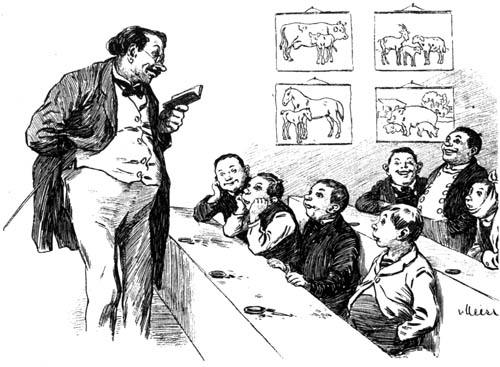Spelling
by Rob Zaretsky
Today, historian Rob Zaretsky struggles with spelling. The University of Houston presents this series about the machines that make our civilization run, and the people whose ingenuity created them.
As an academic, I suppose I should welcome those moments when I am raised by the petard my own students usually hang from -- the English language. At a gathering of colleagues, I was reading lines spoken by Brabantio in Shakespeare's Othello. Lend an ear:
In honest plainness thou hast heard me say
My daughter is not for thee; and now, in madness ...
It gets worse. Here I hesitated, then plunged down the wrong path of pronunciation:
Being full of supper and distempering draughts ... dost thou come
To start my quiet.
I said "drawts," instead of "drafts," even though "drawts" made no sense. I discovered my mistake only later that day; my learned friends had been too kind to correct me. There was no laughter though there ought to have been (or lawter thouff there awft to have been?)
What happened? Like Samuel Johnson, when asked why he made a mistake in his Dictionary, I plead: "Ignorance, pure ignorance." But the more interesting question also happens to be related to dictionaries: why, in heaven's name, cannot words be spelt the way they're pronounced? Why was my ignorance -- though I've watched my share of Masterpiece Theatre and quaffed more than one draught (or drawt) of beer -- so easily exploited?
This becomes all the more annoying when, say, the word "daughter" -- found in the same passage -- is not pronounced "dafter." But this wasn't always the case: Shakespeare sets the word alongside "after" in The Taming of the Shrew,indicating, in his day, one would be daft to say dawter.
As you can see, the subject of spelling starts my quiet -- as it does that of my seven-year old Ruben, who has just entered the meta-physics of English orthography. We're not alone: two hundred years ago, Noah Webster also complained about our capricious common tongue. Were we to simplify our spelling, Webster claimed, children would learn more quickly and painlessly: eventually, it would "be as difficult to spell wrong as it is now to spell right." (And not "rift.")
Webster's reasons were thoroughly American: an orthographical reformation made good economic and political sense, he thought, by spurring the publication of books in our young and uncertain republic. Yet Webster's utopian practicality found no more support than have subsequent efforts in the nineteenth century by the American Philological Association and the Spelling Reform Board in the twentieth century.
To Ruben's perennial question, "Why does it sound like this sometimes, but not other times?" the short answer is "Because history has made it so." For many, the rationalization of spelling is tantamount to the filling in of the Grand Canyon or leveling of the Rockies: a blasphemous indifference to the majesty and complexity of our past. As George Steiner writes, time and language move together "in linear progression." To reverse one violates the other.
America has nevertheless resisted applying common sense to our common language. And while this may change under the pressure of the Internet, and our new lingua franca, E-language, it will be -- all too appropriately -- change spurred from below, not above.
I'm Rob Zaretsky at the University of Houston, where we're interested in the way inventive minds work.
George Steiner, After Babel: Aspects of Language and Translation. (New York, Oxford University Press 1975)
Noah Webster, "An Essay on the Necessity, Advantages, and Practicality of Reforming the Mode of Spelling and of Rendering the Orthography of Words Correspondent to Pronounciation," in Dissertations on the English Language(Boston: 1789)
Robert Zaretsky is professor of French history in the University of Houston Honors College, and the Department of Modern and Classical Languages. (He is the author of Nîmes at War: Religion, Politics and Public Opinion in the Department of the Gard, 1938-1944. (Penn State 1995), Cock and Bull Stories: Folco de Baroncelli and the Invention of the Camargue. (Nebraska 2004), co-editor of France at War: Vichy and the Historians. (Berg 2001), translator of Tzevtan Todorov's Voices From the Gulag. (Penn State 2000) and Frail Happiness: An Essay on Rousseau. (Penn State 2001).

(clipart)